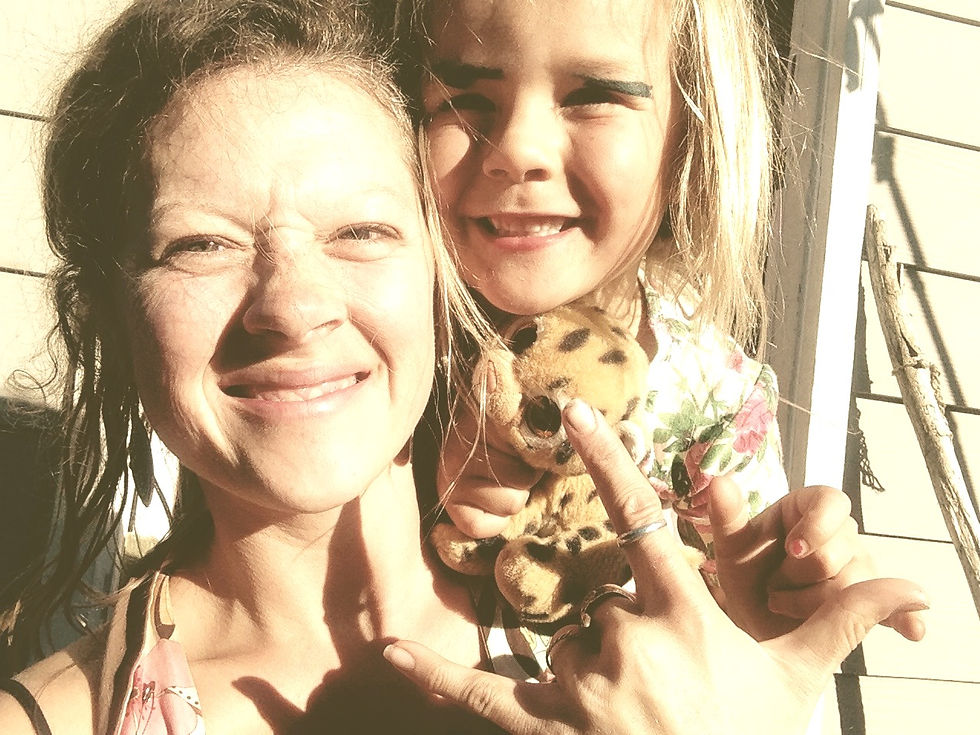Disloyalty and Radical Feminist Practice
- Elmira
- Jan 14, 2016
- 4 min read

While there are a many number of things that can be said in reflection about my readings this week, as I sit down to reflect I notice that the prevalent thoughts in motion are in regards to Disloyal to Feminism (http://eminism.org/readings/pdf-rdg/disloyal.pdf. Perhaps just because I read that one last. In thinking about this self indulgent feminist fantasy concept that koyma talks about, I wonder; how can those that educate direct service workers develop curriculum and practice a pedagogy that gives frontline workers the complex skills required to simultaneously keep their jobs, sanity, moral integrity, and interrupt the daily microagressions they witness in their work, as well as systemic and institutionalized oppression, all while serving survivors and victims with integrity? While I acknowledge that is a lot to ask of frontline direct service workers who are for the most part servants of the institution and/or corporate donors, it is also necessary.
Having served in a direct service capacity, I am oh so intimately familiar with the disillusionment that creeps in over time, and the emotional responses that can be generated by having to work under such unreasonable conditions; rage, apathy, exhaustion, exclusion, blame, fear. Because as koyma points out:
“…front line direct service workers are not directly to be blamed, as they are frequently themselves dehumanized by the contradiction of having to respond to an extraordinary weight of responsibility and having too little institutional power to affect the larger system.”
This reading reminded me of an experience I had back in 2011, while working with houseless individuals with mental health challenges. The issue was that there was that a group of organizers (most of whom were academic professionals) who came to a consensus this population was becoming a burden on the Occupy Portland campaign and encampment. From their perspective, the campaign was limited in its capacity to create systemic change due to the overwhelming amount of human energy and resources that were being “wasted” on providing direct services and resources to this population. Their proposed solution was to engage in exclusionary practices like ceasing to offer resources such as food, clothing, and medical services. Their idea was that if we didn’t offer these resources then this specific population would move on ( to service providers that could more effectively serve them), and we could finally start working on the systemic issues we gathered to work on in the first place, with people who actually had something to offer the campaign. People like them; white, academically educated, with class privilege.
Now, four years later, I’m still wrestling with the questions and concepts we collectively grappled with in the stream of endless meetings, working groups, spokes councils, and general assemblies. For the most part, I resonate with koyma’s thought that fighting for social change includes and requires “…the active disloyalty to white supremacy and all of the structures that perpetuate systems of oppression and privilege.” During our debates I vehemently opposed exclusionary practices and used what little agency I had to block any and all proposals that targeted houseless individuals with mental health challenges, and would likely do so again if I had it to do all over again because I believe(d) that exclusionary practices that target a systemically oppressed group is the practice of white supremacy and perpetuates systems of privilege and oppression.
However, I must also acknowledge the valid critique that we did not have the capacity to serve this population in the way that they needed; in a way that would have made a meaningful difference in their lives rather than “simply” alleviating acute suffering, which is far from a simple offering when every thread of clothing you own is soaked from the rain, are developing skin infections as a result, and have just had all of your belongings confiscated by Portland Public Police in a sweep.
The systemic issues that limit(ed) access to the economic resources that would have actually served this population’s needs, are as present now as they were then, despite the vicious internal battle some of us waged to maintain the right to offer blankets, coat, meals, and medical care. I consistently see individuals I worked with back then and they are still living outside, still not getting trauma informed treatment for their mental health, and still suffering from physical conditions that are a product of living in extreme poverty.
As with the aforementioned population, what victims and survivors of IPV may need most are economic resources related to housing, healthcare, transportation, food security, and non discriminatory employment. However, these resources are often scarce, and direct service organizations are often sanctioned and/or underfunded/ defunded based on oppressive notions of success and compliance of it’s participants.
This is a deeply difficult concept to come to terms with, and after many years of reflection, I have no clear solutions. Yes, systemic issues must be addressed, yet I believe that human suffering must also be alleviated if we have the capacity and resources to do so. Unfortunately, these frontlines are inextricably interdependent and leave many people who are good intentioned, in a deeply nuanced quandary of where their efforts may be best applied.
Reference: Disloyal to Feminism: Abuse of Survivors within the Domestic Violence Shelter System by Emi Koyama




Comments